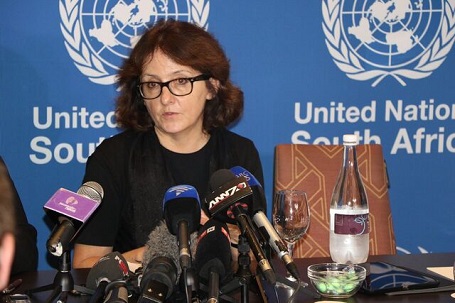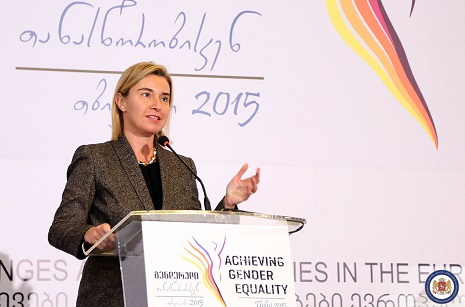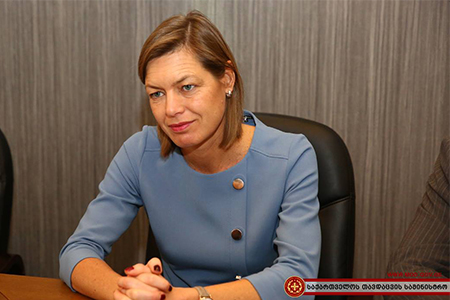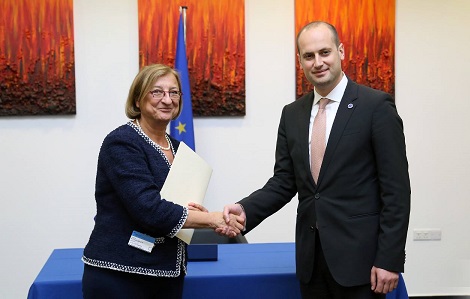Government supports women’s rights legislation

Legislative amendments aimed at protecting women’s rights and preventing domestic violence have been approved by the Georgian Cabinet of Ministers today.
Stalking, forced sterilisation, female genital mutilation and other acts of violence will be more easily punishable by law after the amendments are examined by the Georgian Parliament.
The proposed changes developed by the Ministry of Justice aim at bringing the Georgian legislation in line with the provisions of the Council of Europe (CoE) Convention on preventing and combating violence against women and domestic violence, also known as the Istanbul Convention, which Georgia signed back in 2014 and is now ready for ratification.
Georgia’s Minister of Justice Thea Tsulukiani believes every man and woman, both old and young, will now be better protected from any form of violence both in and out of the home. The package of amendments to more than 20 laws introduces the following terms:
Stalking
This new addition to the Criminal Code includes watching or spying on a person illegally; forcing unwanted contact through telephone or electronic social media in a systematic nature, containing insults or threats to the victim or her family members and forces the person to change his or her lifestyle. Stalking may be punishable by up to two years’ imprisonment.
Female Genital Mutilation
Article #1332 will criminalize forced female genital mutilation (FGM). The changes consider criminal punishment for forcing women and girls to undergo FGM for traditional, national, religious and other reasons. A similar act against a pregnant, disabled or underage woman will be considered an aggravating circumstance.
Forced Sterilisation
Along with forced abortion, which according to the current Code is a criminal offense, forced sterilisation will also now be criminally punishable.
Domestic Violence
A protective order issued by police in cases of domestic violence will need no court approval but will rather enter into force immediately.
The police is becoming strong in the fight against domestic violence and violence against women”, Georgia’s Minister of Justice Thea Tsulukiani said.
The Minister also said women in unregistered marriages will also be protected from violence from their (former) partners.

People protest violence against women and domestic violence at a peaceful rally in capital Tbilisi. Photo by: Nino Alavidze/Agenda.ge
About the Istanbul Convention
Each state that has signed the convention takes obligation to address it fully in all its forms and to take measures to prevent violence against women, protect its victims and prosecute the perpetrators.
The Minister of Justice believes that after the amendments are passed, women’s rights in Georgia will be protected according to European standards, while the Georgian legislation will work in accordance with the Istanbul Convention.
The purposes of the Convention is to protect women against all forms of violence, and prevent, prosecute and eliminate violence against women and domestic violence; contribute to the elimination of all forms of discrimination against women and promote substantive equality between women and men, including by empowering women; design a comprehensive framework, policies and measures for the protection of and assistance to all victims of violence against women and domestic violence; promote international co-operation with a view to eliminating violence against women and domestic violence; provide support and assistance to organisations and law enforcement agencies to effectively coâoperate in order to adopt an integrated approach to eliminating violence against women and domestic violence.”
Now it is the turn of the members of parliament (MPs) to support the proposed changes.
Minister Tsulukiani believes the MPs will be unanimous in their decision and give the legislative amendment the green light thus lead to final ratification of the Istanbul Convention.
 Tweet
Tweet  Share
Share







